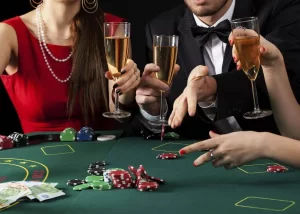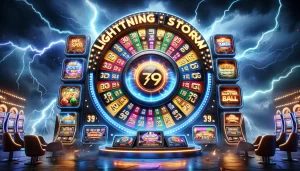
Ever notice how baccarat players blow on their cards or tap the table before a big bet? There’s a reason—or rather, centuries of superstition—behind those quirks. From 15th-century Italian nobility to high-rollers in Macau today, baccarat’s rituals are as much a part of the game as the cards themselves. Let’s peel back the velvet curtain.
The Weird and Wonderful History of Baccarat Superstitions
Baccarat’s mystique didn’t just pop up overnight. It’s a cocktail of folklore, numerology, and good old-fashioned luck-chasing. Here’s how it all started:
1. The “Death Number” That Haunted Royalty
In medieval Europe, the number 9 was considered cursed—ironic, since it’s the highest score in baccarat. Legend says King Charles VIII of France banned the number after losing his throne (and his head) following a 9-bet gone wrong. Even today, some Asian players avoid betting on 9s.
2. That Time a Bishop Cursed the Game
Around 1500, a Venetian bishop declared baccarat “the devil’s game” after nobles kept skipping mass to play. The Church’s disapproval? Basically free marketing. The game became a forbidden thrill—and players developed rituals to “ward off” bad luck, like spitting over their left shoulder (yes, really).
3. The Macau Money-Tapping Phenomenon
Fast-forward to 1960s Macau, where high-stakes players started tapping stacks of cash on the table before deals. Why? Local lore claims it “wakes up” the money’s energy. Now, even billionaires do it—just watch any high-limit baccarat stream.
Modern Baccarat Rituals: What Players Actually Do Today
Forget rabbit’s feet. Modern baccarat superstitions blend tradition with casino psychology. Here’s what you’ll see in 2024:
- Card-bending: High rollers crease card edges to “feel” their luck—despite dealers using automatic shufflers.
- Shoe-tapping: Players knock the dealing shoe like it’s a vending machine that might cough up a jackpot.
- The “Dragon Bonus” whisper: In Asian casinos, players mutter prayers to the Dragon Bonus side bet before it’s dealt.
The “Hot Seat” Myth (And Why Everyone Believes It)
Walk into any baccarat pit and you’ll see players scrambling for Seat 7. Why? Because in Chinese culture, 7 sounds like “life”—never mind that math says seat position doesn’t matter. Casinos lean into this, even designing VIP rooms with seven seats max.
The Science (Sort Of) Behind the Superstitions
Turns out, there’s a sliver of logic beneath the madness. Studies show rituals reduce anxiety by creating a sense of control—which explains why even data-driven hedge fund managers blow on dice in Macau. Key findings:
| Ritual | Psychological Effect |
| Blowing on cards | Triggers deep breathing (lowers heart rate) |
| Avoiding red clothing | Color association with “stopping” (red = loss in Asian cultures) |
| Stacking chips in pyramids | Creates visual order (reduces decision fatigue) |
When Superstition Crosses Into Strategy
Here’s where it gets tricky. Some rituals accidentally mirror actual tactics:
- Card tracking through rituals: Old-school players would bend cards to mark them—now banned, but the habit persists.
- Banker bias: The “always bet Banker” rule started as superstition… but statistically, Banker does win 50.68% of the time.
- Pattern spotting: Writing down shoe results seems mystical—until you realize some players are counting cards under the radar.
The Future of Baccarat Beliefs
With online baccarat booming, you’d think superstitions would fade. Nope. Now we’ve got:
– Live dealer rituals: Players still “blow” on their phone screens (yes, it’s been studied).
– Emoji charms: Sending 🍀 or 🐉 in chat before big bets.
– VR baccarat avatars wearing “lucky” digital red underwear (we wish we were joking).
So here’s the thing—whether you’re a logic-first player or someone who won’t sit until the dealer smiles, baccarat’s quirks reveal something universal. We all want to believe we can tip the scales, even when the math says otherwise. Maybe that’s the real magic of the game.







